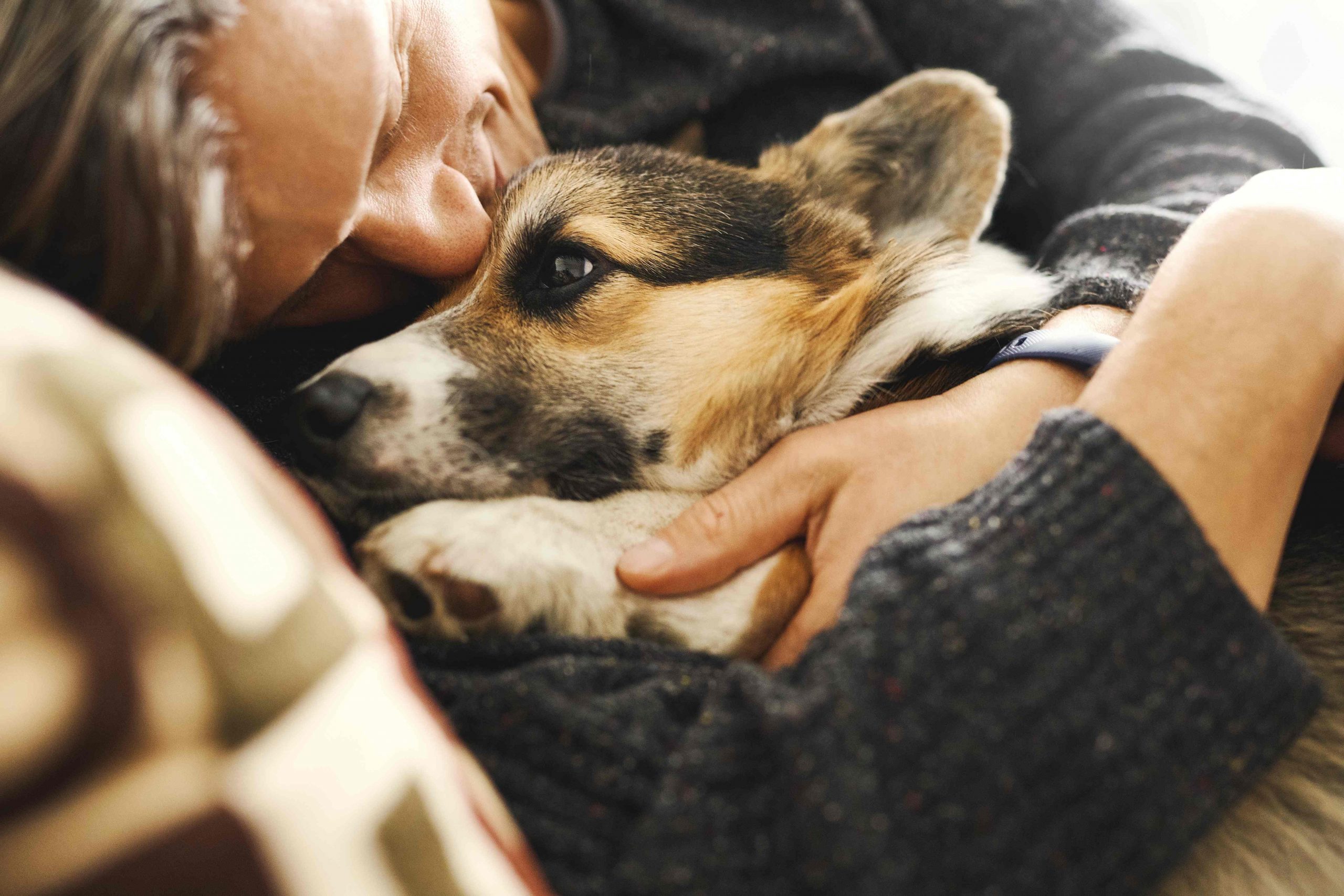Owning a dog can teach a person as much about herself as about her companion, The Wall Street Journal’s Katherine Bindley reflected in a recent essay. From the beginning, owning a dog requires both love and resolve. But the most enduring lesson a dog can teach might be its last, according to hundreds of Journal readers who read and commented on Bindley’s essay. The inevitable passing of a pet and the processing of the subsequent grief is a powerful lesson in resilience.
Richard Nelson of Wascott, Wis., is all too familiar with the anguish that comes with losing a pet.
“My most devastating experiences in life have been saying farewell to my best friends,” he said, referring to the three English Springer spaniels he and his family have owned. Their fourth, Captain, is 2 years old. “When the others passed, the pain was, well, unbearable.”
Losing a dog is a unique brand of grief, according to Nancy Curotto, a licensed psychologist specializing in pet loss.
The relationship a person has with their pet is “one of the most intense bonds one can have,” Curotto said. “This relationship is unconditional. [Your pet] witnesses you in ways other relationships don’t.”
Although most owners adopt with the tacit understanding that they will outlive the object of their affection, these deep bonds mean that coming to terms with the loss when it does occur is especially difficult.
Sandra Sori of Oakland, N.J., can attest to how integrated pets are into our lives.
“You spend more time with your dog than any human, including your significant other,” she observed. Sori has shared her home with four dogs over the past three decades, including the two she owns now: Ray, a 10-year-old Brittany spaniel, and Frankie, a 5-year-old St. Bernard. “You have daily rituals and routines that you may not even notice, but when they’re gone, it’s such a loss.”
The pain of that loss is enough to make even the most seasoned dog owners question whether the love of a dog is worth the price.
“Each time, when I got a new pup, I asked myself what was wrong with me, knowing that I’d have to go through [it] again someday,” Nelson said.
That question comes up often in Curotto’s practice. She reminds her clients that choosing to adopt another dog doesn’t diminish or replace the relationship they had before: “Grief isn’t something we get over,” she said. “We grow around our grief. You can grieve and love at the same time.”
Derick Ball of Rancho Palos Verdes, Calif., has grappled with that duality as he and his family watch their 15-year-old Cockapoo, Dakota, continue to decline. “Looking at that empty spot on the floor is going to break my heart,” he said.
Even as he stares down an inevitable loss, Ball has no regrets.
“The heartbreak comes as part of the deal. Never owning a dog is to deny yourself one of the most beautiful and human things that life can bring,” he said.
“I always say never again,” Sori agreed. “Then I get another because there is no love like it.”
Trying to avoid future suffering, others pointed out, comes with its own consequences.
After the death of his last dog, a male shepherd-husky mix, David Wase of Hillsboro, Va., was hesitant to adopt again; he feared having to endure another loss. More than a year passed before Sabre, a purebred German shepherd born to a mother abandoned on Washington, D.C.’s Beltway, changed his mind.
“I came to believe that if I didn’t have a canine companion, I was merely denying myself a richness of life while also denying a dog, somewhere, a human that they might desperately need,” Wase said.
He swore he would never again let that much time pass.
“Yes, [a dog] will make you face a possibly excruciating loss,” Wase said. “But I guarantee, you will know you are alive and human and have the capacity to care and feel deeply in the process.”
Write to Gretchen Tarrant Gulla at gretchen.tarrant@wsj.com



